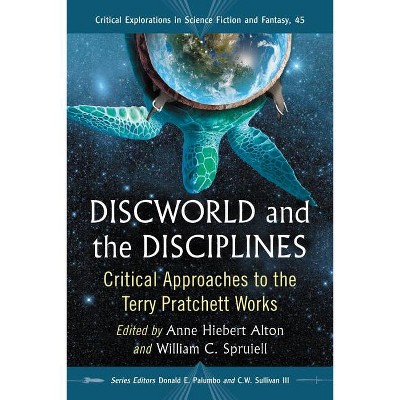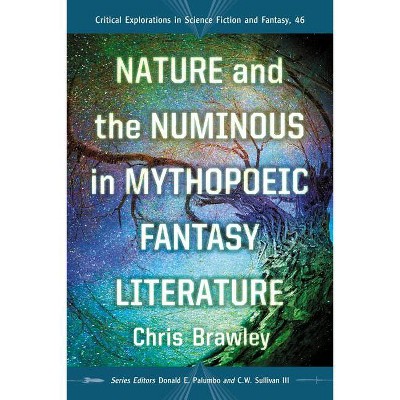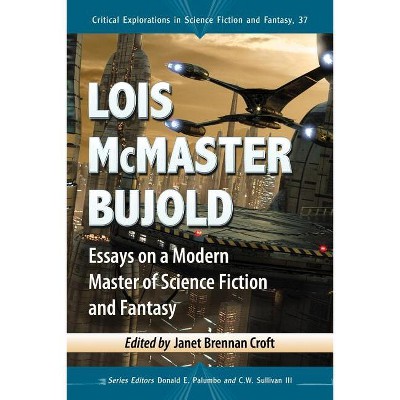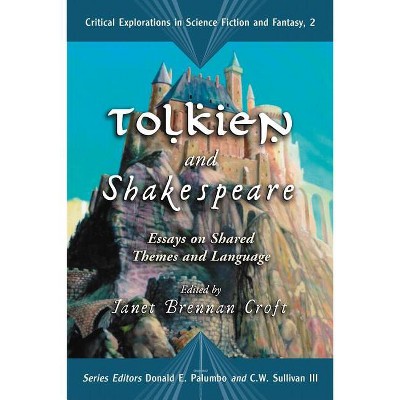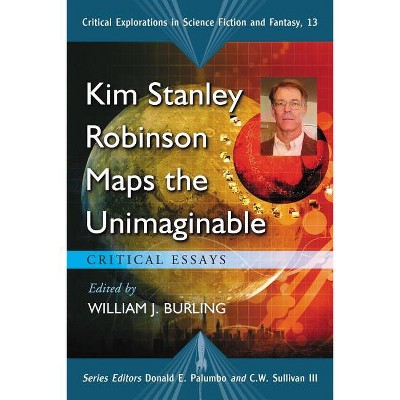Sponsored

The Physics and Astronomy of Science Fiction - by Steven D Bloom (Paperback)
In Stock
Sponsored
About this item
Highlights
- The great scientific, astronomical and technological advances of the 20th century inspired the science fiction genre to imagine distant worlds and futures, far beyond the discoveries of the here and now.
- About the Author: Steven D. Bloom is a professor of physics and astronomy at Hampden-Sydney College, located near Farmville, Virginia.
- 244 Pages
- Literary Criticism, Science Fiction + Fantasy
Description
About the Book
The great scientific, astronomical and technological advances of the 20th century inspired the science fiction genre to imagine distant worlds and futures, far beyond the discoveries of the here and now. This book explores science fiction films, television series, novels and short stories--from Lost in Space (1965-1968) to Fringe (2008-2013) to the works of Isaac Asimov and Stephen Baxter--with a focus on their underlying concepts of physics and astronomy. Assessing accuracy and plausibility, the author considers the possibilities of solar system, interstellar and faster than light travel; intelligent planets, dark (anti-) matter, the multiverse and string theory, time travel, alternate universes, teleportation and replication, weaponry, force fields, extraterrestrial life, subatomic life, emotional robots, super-human and parapsychological powers, asteroid impacts, space colonies and many other topics.Book Synopsis
The great scientific, astronomical and technological advances of the 20th century inspired the science fiction genre to imagine distant worlds and futures, far beyond the discoveries of the here and now. This book explores science fiction films, television series, novels and short stories--from Lost in Space (1965-1968) to Fringe (2008-2013) to the works of Isaac Asimov and Stephen Baxter--with a focus on their underlying concepts of physics and astronomy. Assessing accuracy and plausibility, the author considers the possibilities of solar system, interstellar and faster than light travel; intelligent planets, dark (anti-) matter, the multiverse and string theory, time travel, alternate universes, teleportation and replication, weaponry, force fields, extraterrestrial life, subatomic life, emotional robots, super-human and parapsychological powers, asteroid impacts, space colonies and many other topics.
Review Quotes
"extremely unique in that it is more a book about physics and astronomy than about science fiction...although that may seem counterintuitive, this should not keep people from reading the book because Steven D. Bloom makes the information simple and easy to understand for those who do not have a background in physics and/or astronomy"-Communications Booknotes Quarterly.
About the Author
Steven D. Bloom is a professor of physics and astronomy at Hampden-Sydney College, located near Farmville, Virginia. He was previously a post-doctoral fellow at NASA's Goddard Space Flight Center and then NASA's Jet Propulsion Laboratory.Shipping details
Return details
Trending Poetry







